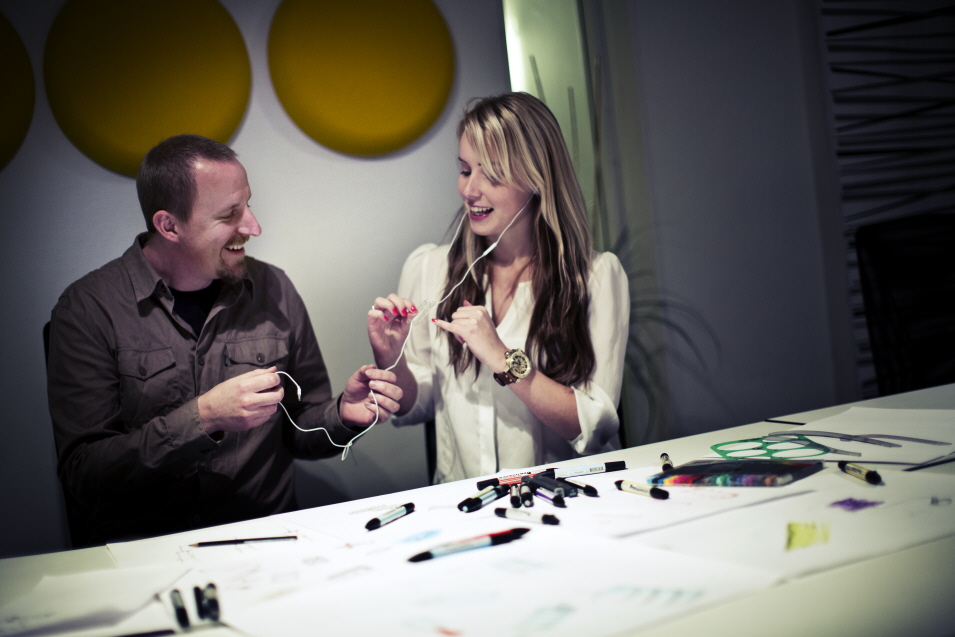International Master's Programme in Design for All, 120 Higher Education Credits, 120 Credits

Every person is unique – which we see as a great advantage. In the programme Design for all, these differences are our starting point. We have developed a method where we bring the users who have the strongest and most demanding needs into the design process. The method has proven to be very effective in terms of innovative design solutions. The programme is developed for students who are curious and want to join us in developing our environment with high ethical and aesthetic ambitions.
Design for all is a vision of a world where everybody can take part and experience a high quality of life. It is a world where our differences are what makes this possible. We are looking for students who want to be part of a creative development of advanced and sustainable design solutions. As a student of the Design for all programme, you will join a programme in which we emphasize
Creativity and problem solving methodology.
Critical evaluation of existing solutions and analysing the special needs of the most demanding user groups precedes the development and design of innovative solutions for human well-being. This means that in the design process, you will use advanced methods to understand the core of the problem and define its structure. You will also examine relevant systems and different ways of including external knowledge.
User centred Design for all process.
In the user centred process, we involve different target groups in a thought-out way to gather facts during each step of the development process. Various empirical methods lead to a profound understanding of each user’s needs. We also offer a unique research lab, where students can investigate physical and mental effects of different design solutions.
Sustainability effects.
Our programme pays special attention to the long-term environmental, social and economic effects of design solutions. The aim is to seek and implement a no-waste cradle-to-cradle ethic in terms of diversity, equality and democracy as well as the quality of life.
Multidisciplinary and international orientation.
With our origin in industrial design, our programme seeks interdisciplinary interaction and exchange. We collaborate closely with Design for all organizations, related industries, institutions and the public sector locally, nationally and internationally.
Entry requirements
Degree of Bachelor in Industrial Design, or Degree of Bachelor of Science in Engineering, of at least 180 Credits, or equivalent, with at least 60 Credits (60 ECTS) in Industrial Design. Successful completion of the work sample.
English course A from Swedish Upper Secondary School (Gymnasium) or equivalent. This can be proven by for example the following international tests:
- TOEFL with a minimum score of 530 on a paper based test and not below 4.0 on the TWE
- TOEFL with a minimum score of 72 on internet based test and not below 17 on the TWE
- IELTS Academic Training with a minimum overall score of 5.5 and a minimum score on the specific parts of at least 5.0.
Selection
The selection process from those who meet the entry requirements is based on the results of the work samples and home assignment.
To apply to the programme, visit www.universityadmissions.se.
In the top of this page, in the menu to the left under “work samples and home assignment” you find more information about the compulsory work samples (portfolio) and the home assignment that you have to submit to us digitally via e-mail as a complement to your application.
Title of qualification
Degree of Master of Arts/Science (120 credits)
Masterexamen med huvudområdet industridesign, som översätts till Degree of Master of Arts (120 credits) with a major in Industrial Design.
After the program
After having completed the programme, you will be able to work with innovative design of products, environments, different kind of aids, systems and services from a Design for all perspective.
You will also have the knowledge to run or participate in multidisciplinary development and applied research projects.
Specialists in this field have excellent chances to find a job at a large-scale enterprise or design office, start up their own consulting firm or to teach.
